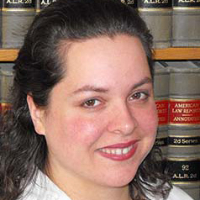Elmira Misdemeanor Lawyer, Michigan
Sponsored Law Firm
-
 x
x

Click For More Info:
-
Hannawa Law PC
2909 E Big Beaver Rd Troy, MI 48083» view mapCriminal Defense Law Full-service legal experts on your side.
Whatever the specific details of your situation may be, our attorneys are ready to fight for you and guide you through every step of the process.
248-466-0770
Not enough matches for Elmira Misdemeanor lawyer.
Below are all Elmira Criminal lawyers.
Jodi J. Doak
✓ VERIFIEDEstate, Traffic, Criminal
Mrs. Doak graduated from Thomas Cooley Law School in 2001 as the most decorated student in the school’s history, tying for 5th highest GPA in the sc... (more)
Michael Thomas Cooper Klagstad
Juvenile Law, Landlord-Tenant, Litigation, Criminal, Insurance
Status: In Good Standing Licensed: 10 Years
Wanda S. Losher
Collection, Divorce & Family Law, Estate, Criminal
Status: In Good Standing Licensed: 10 Years
Janet M. Allen
Lawsuit & Dispute, Criminal, Accident & Injury
Status: In Good Standing Licensed: 45 Years
Bernard J. Caspar
Criminal, Bankruptcy, Divorce, Social Security -- Disability
Status: Inactive Licensed: 47 Years
Michael A. Rola
Government Agencies, Criminal, Administrative Law, Government
Status: In Good Standing Licensed: 38 Years
 Nickolas Hannawa Troy, MI
Nickolas Hannawa Troy, MI AboutHannawa Law PC
AboutHannawa Law PC

